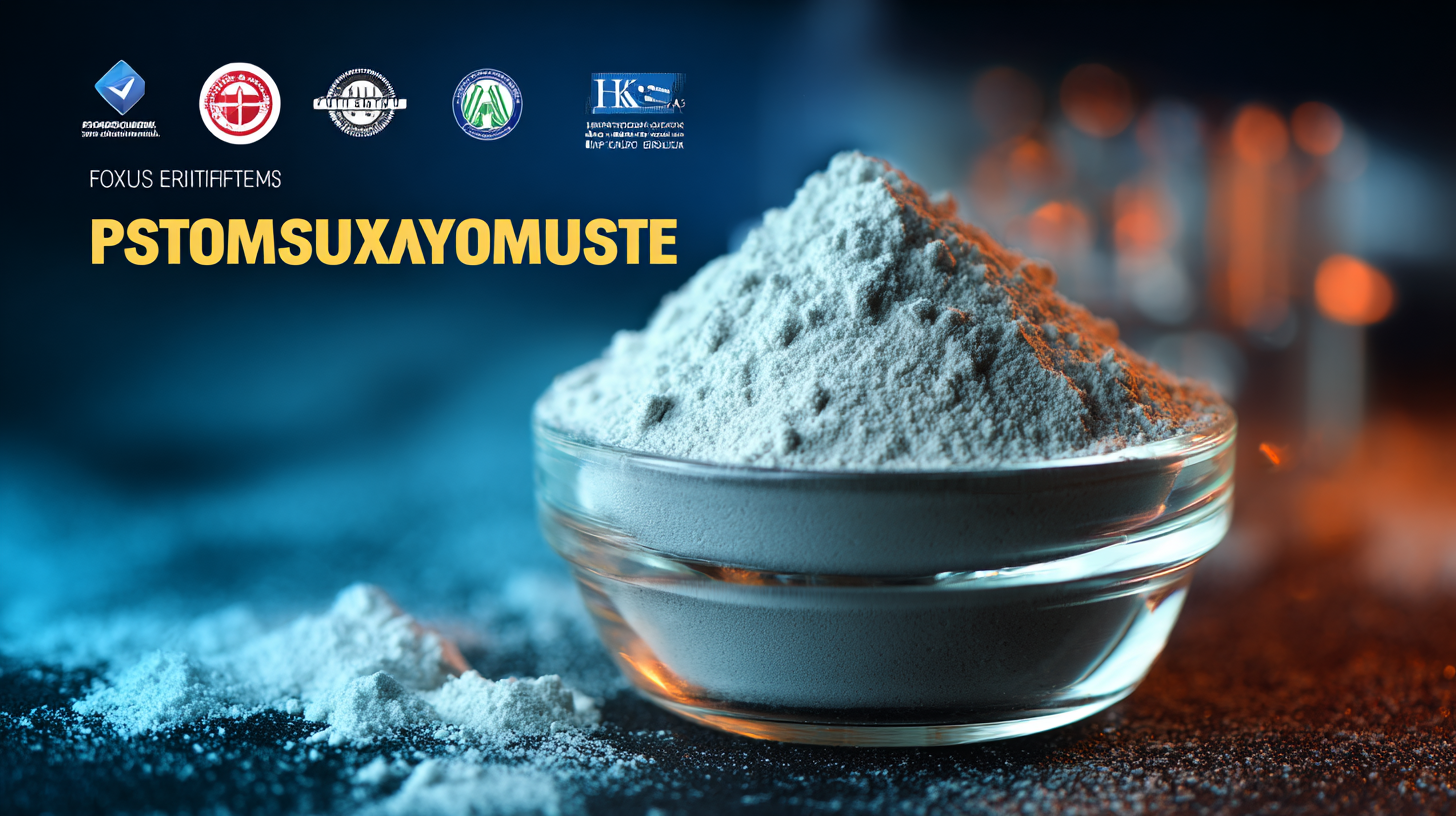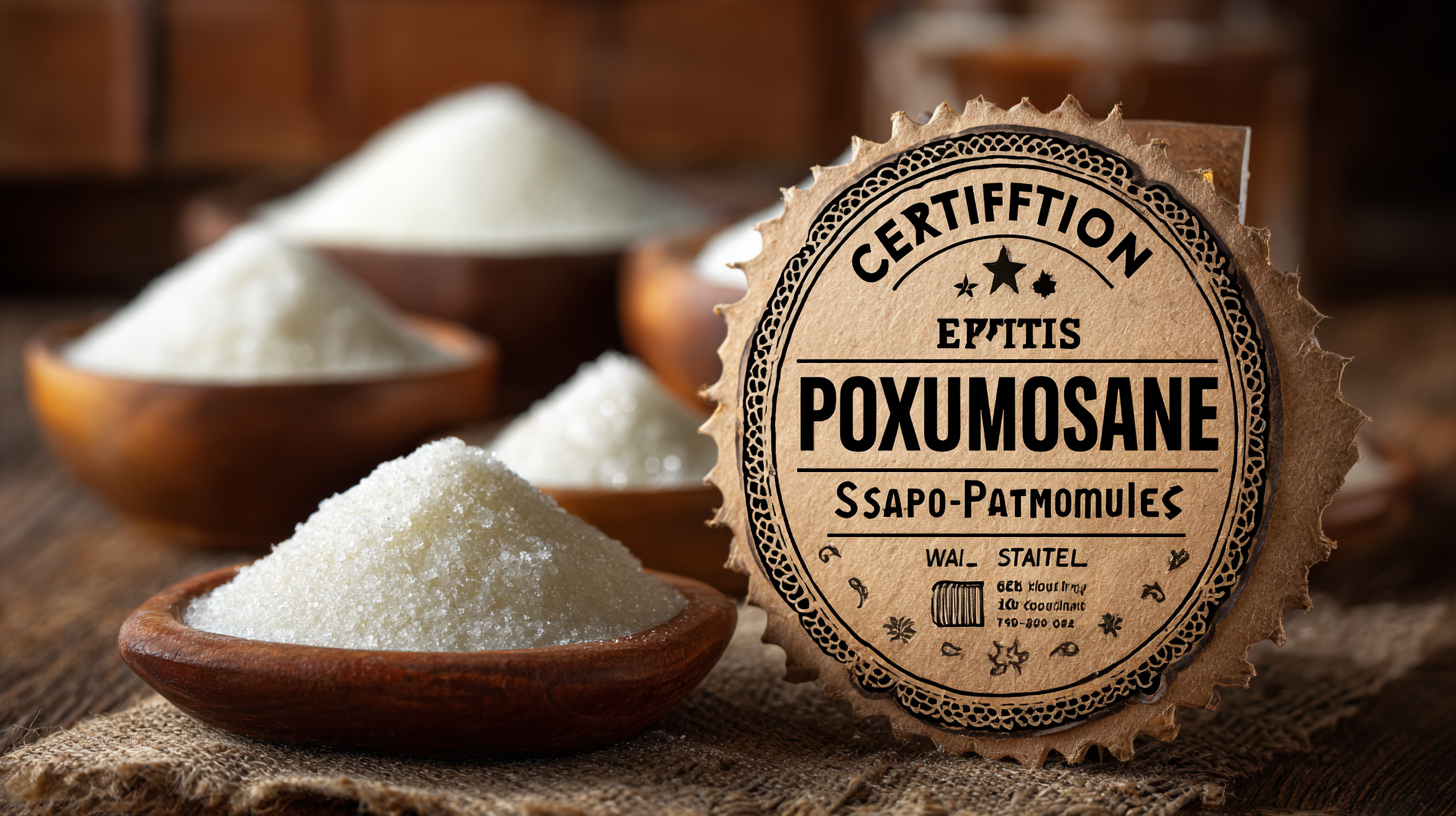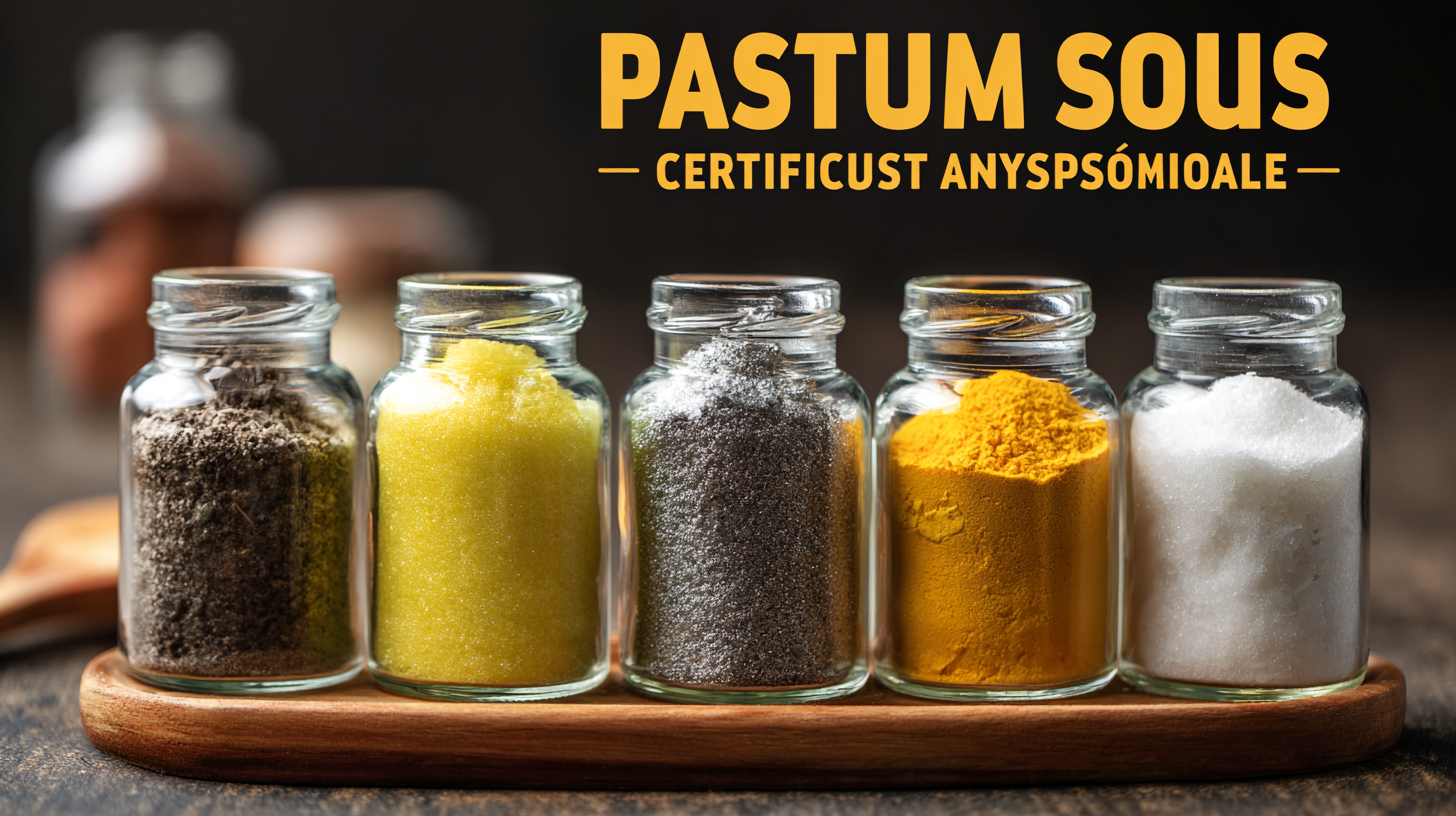In the competitive landscape of the chemical industry, Potassium Peroxymonosulfate (PMS) stands out as a versatile and essential compound, widely used in applications ranging from water treatment to disinfection. As we look ahead to 2023, understanding the export certifications associated with this powerful oxidizing agent is crucial for manufacturers aiming to enhance their global market presence. This comprehensive guide explores the top five export certifications vital for ensuring compliance and maximizing the potential of Potassium Peroxymonosulfate in international trade. Beyond certifications, we will delve into the market analysis projections for the industry up to 2025, supported by data-driven insights and practical tips. By equipping ourselves with the right knowledge and certifications, businesses can strategically position themselves to thrive in this evolving market.

When it comes to exporting potassium peroxymonosulfate, adhering to essential certifications is crucial for suppliers aiming to expand their market reach and ensure product compliance. The Global Chemical Industry Report (2023) notes that demand for potassium peroxymonosulfate, commonly used in water treatment and disinfection, has surged globally, making certifications even more pertinent. Key certifications such as ISO 9001, which signifies quality management systems, and REACH compliance, which regulates chemicals in the European Union, are fundamental for suppliers. These certifications not only help ensure product safety and quality but also facilitate smoother entry into international markets.
In addition, suppliers should also consider obtaining certifications like NSF/ANSI 60, which pertains to chemicals used in drinking water treatment, as noted in the Drinking Water Quality and Compliance Report (2023). This certification is particularly critical for companies targeting markets in North America where water safety standards are stringent. Furthermore, eco-label certifications such as the EcoLogo can enhance a supplier's credibility, appealing to environmentally conscious customers and reinforcing a commitment to sustainable practices. Therefore, obtaining these essential export certifications is not just about compliance; it is also a strategic business move that can propel suppliers to the forefront of the global potassium peroxymonosulfate market.
In the realm of chemical exports, compliance with international standards is crucial, particularly for substances like potassium peroxymonosulfate (PMS). Various regulatory frameworks such as the REACH (Registration, Evaluation, Authorisation and Restriction of Chemicals) and the GHS (Globally Harmonized System of Classification and Labelling of Chemicals) guide exporters in ensuring their products meet safety and environmental requirements. According to a recent industry report by Grand View Research, the potassium peroxymonosulfate market is projected to grow at a CAGR of 6.5% through 2025, underscoring the importance of compliance as the competition intensifies.

To ensure compliance and boost export efficiency, companies should prioritize obtaining relevant certifications. This includes looking into certifications like ISO 9001 for quality management systems, which not only enhances product credibility but also minimizes the risk of non-compliance. One of the best strategies is to conduct regular audits and assessments of your supply chain, as adherence to environmental regulations can significantly reduce potential legal hurdles.
Tips: Always stay updated with changes in international regulations to avoid penalties. Engaging with expert consultants can streamline your compliance processes, ultimately leading to more efficient exports. Additionally, fostering transparent communication with regulatory authorities can help establish your company as a trustworthy player in the chemical export market.
Obtaining export certifications for potassium peroxymonosulfate (PMS) is crucial for ensuring market access and compliance with international standards. The first step in this process often involves understanding and meeting the specific requirements set forth by regulatory agencies in target markets. According to a report by MarketsandMarkets, the global potassium peroxymonosulfate market is expected to grow from $250 million in 2020 to $350 million by 2025, highlighting the increasing demand for reliable certifications.
Once you’ve identified the relevant certifications, such as ISO 9001 for quality management or REACH compliance for chemicals in Europe, the next stage is gathering the necessary documentation. This can include safety data sheets, usage instructions, and quality assurance reports. Industry data from Statista indicates that approximately 60% of companies report that thorough documentation significantly speeds up the certification process. Engaging with experts in regulatory affairs can further streamline the submission process and ensure that all requirements are met efficiently, enabling timely access to key markets.

When looking to export potassium peroxymonosulfate, obtaining the right certifications is crucial for compliance and market acceptance. There are several reputable agencies and organizations dedicated to chemical certification that can help streamline this process. Key players include the American Chemical Society (ACS), the International Organization for Standardization (ISO), and the European Chemicals Agency (ECHA). Each of these institutions provides rigorous evaluation processes to ensure chemicals meet safety and quality standards.
Tips for selecting the right certification agency include verifying the agency’s reputation and history in the chemical industry. Establishing a direct line of communication can also facilitate smoother interactions when seeking guidance on compliance requirements. Additionally, consider the specific markets where you intend to export, as different regions may have varied certification demands, making it essential to align your choice with your target audience.
Moreover, staying updated on the latest industry regulations through these organizations can aid in maintaining compliance over time. This proactive approach not only helps in acquiring necessary certifications more efficiently but also supports the long-term reputation and trustworthiness of your product in the global marketplace.
| Certification Agency | Certification Type | Region of Recognition | Validity Period | Additional Notes |
|---|---|---|---|---|
| Agency A | ISO 9001 | Global | 3 years | Focus on quality management systems |
| Agency B | REACH Compliance | Europe | Ongoing | Chemical safety regulations |
| Agency C | GHS Certification | Global | 5 years | Classification and labeling of chemicals |
| Agency D | ISO 14001 | Global | 3 years | Environmental management systems |
| Agency E | HACCP Certification | Global | 2 years | Food safety management |
In 2023, maintaining the validity of export certifications is critical for businesses dealing with potassium peroxymonosulfate. As regulatory landscapes evolve, companies must adopt best practices to ensure they remain compliant. One effective strategy is to stay informed about relevant international standards and any updates to certification requirements. Regular training sessions for staff can cultivate a culture of compliance and awareness, reducing the risk of lapses in certification validity.
Another important tip is to implement a robust tracking system for certification renewals and audits. This can include setting reminders for renewal dates and scheduling regular reviews of compliance documentation. By maintaining clear records and engaging with certification bodies proactively, companies can avoid potential pitfalls that might jeopardize their export capabilities.
Furthermore, businesses should consider collaborating with industry peers to share insights and strategies regarding certification processes. Networking within your sector can provide valuable resources and support, enabling you to adapt to changes efficiently. Leveraging technology to automate compliance checks can streamline processes and ensure that your certifications remain valid in an increasingly complex regulatory environment.
This chart displays the number of companies certified under the top export certifications for potassium peroxymonosulfate in 2023. Understanding these certifications is crucial for ensuring product quality and regulatory compliance in the export market.
